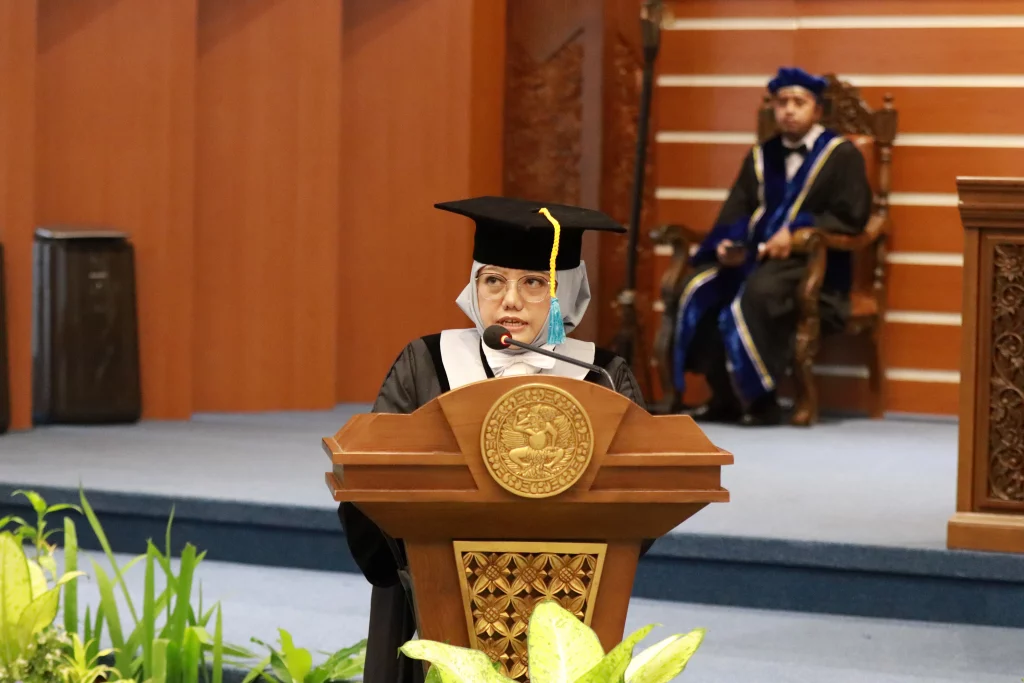UNAIR NEWS – The government has allocated IDR 65.9 trillion in the 2025 State Revenue and Expenditure Budget (APBN) to fund holiday allowances (THR) for civil servants (ASN), military personnel (TNI), police officers, judges, and retirees. However, amid global economic challenges and domestic fiscal dynamics, concerns have emerged regarding the government’s ability to maintain financial stability.
Government’s fiscal preparedness
A distinguished professor at Faculty of Economics and Business (FEB) Universitas Airlangga (UNAIR), Prof. Dr. Sri Herianingrum, SE, MSi, stated that the allocation had been meticulously planned by the government. She affirmed that providing THR for civil servants and security forces is a well-grounded policy to ensure the smooth functioning of government operations.
“This policy is a positive step, considering that civil servants and security personnel play a crucial role in governance and national stability. However, the government must also ensure that vulnerable groups are not neglected,” she remarked.
Nonetheless, some parties have questioned the substantial budget allocation for civil servants, given the high demand for social assistance programs for underprivileged communities. Prof. Herianingrum emphasized that the government must continue supporting vulnerable groups through programs such as Direct Cash Assistance (BLT).
“Budget distribution must be equitable, especially for low-income communities. If not, socioeconomic disparities will widen, particularly when purchasing power declines,” she asserted.
Furthermore, she highlighted that subsidies in the agricultural sector should be a priority as part of a more inclusive fiscal strategy.
“Subsidies should be enhanced, particularly in key sectors such as agriculture,” she added.

Market economy and THR impact
As the Eid al-Fitr celebrations approach, market activities have begun to surge. However, Prof. Herianingrum pointed out that many private-sector companies have yet to fully comply with THR disbursement regulations for their employees, posing a potential challenge to economic stability.
“The government must monitor and ensure that private companies fulfill their THR obligations. If consumer purchasing power increases, market activity will be stimulated, and the economy will move more dynamically,” she explained.
Implication on state budget deficit
The disbursement of THR for civil servants could impact the APBN deficit if not accompanied by sound fiscal policies. Prof. Herianingrum cautioned that maintaining economic stability requires sustained support for lower- and middle-income groups.
“If these groups are not supported, economic growth will slow, and the deficit could expand. The government must strike a balance between personnel expenditure and development spending to ensure economic sustainability,” she concluded.
Editor: Khefti Al Mawalia









